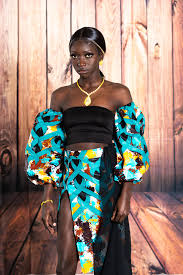Africa’s fashion sector is expanding quickly to fulfill domestic and global demand, but insufficient funding is limiting its potential, according to a report released by UNESCO on Thursday during Lagos Fashion Week.
According to UNESCO Director-General Audrey Azoulay, who unveiled the organization’s first report on fashion in Africa in Lagos, Nigeria’s economic center, the continent’s fashion industry, which currently generates exports valued at $15.5 billion annually, could triple in value over the course of ten years with the right infrastructure and investment.
Azoulay stated that the fashion business on the continent has demonstrated its ability to serve as “a powerful lever for the promotion of cultural diversity (and) also a way to empower young people and women,” given the continent’s youthful population of 1.3 billion people, which is expected to quadruple by 2050.
Fashion is still expanding throughout the continent in a number of ways, including through motion pictures and television. It includes high-end fabrics, clothing, accessories, and handcrafted goods, all of which have a long history and are emblematic of African culture.
The UNESCO report pointed out that the expansion of e-commerce is another factor driving demand for African fashion labels.
The U.S. International Trade Administration states that mobile device online traffic is most prevalent in Africa. More commercial potential has resulted from this; thus, young people in Nigeria, for example, are steadily starting fashion brands on social media.
Africans desire to dress like Africans. The fact that things haven’t always been this way makes it incredibly lovely to witness, according to Omoyemi Akerele, who established Lagos Fashion Week in 2011 to promote the buying of African and Nigerian designers. “However, ten years later, everyone wants to wear that.”
The yearly fashion show, which showcases a variety of designers from all over the continent, honors and markets regional businesses that mostly focus on African culture and crafts in a range of hues and designs.
The director-general of UNESCO stated that youthful fashion designers in Nigeria and other African countries are vying for attention and dominating the international stage.
She claimed that a new generation of youthful designers is making waves in the global fashion industry by redefining the standards of luxury and balancing them with the needs of regional, environmental, and cultural traditions.
Ejiro Amos-Tafiri, one such designer present at Lagos Fashion Week, stated that she utilizes her business to celebrate “the sophistication, class, and uniqueness of every woman” and to express African stories.
People are starting to understand that Nigerian culture has a lot to offer, especially in the fashion business, she said, as a result of more exposure. In light of this, Africa is actually the fashion industry’s next frontier.




















